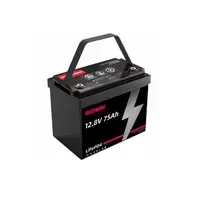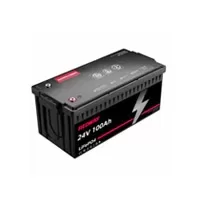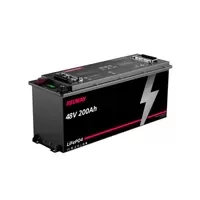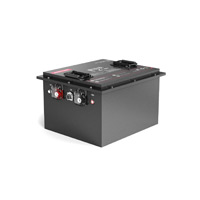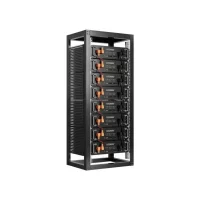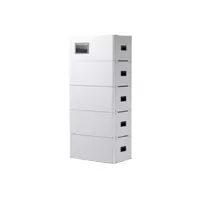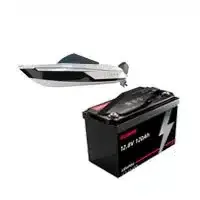(Click to Get a Quick Quote!)
In today’s fast-paced world, where technology is an integral part of our lives, lithium batteries have become the unsung heroes that keep us powered up and connected. From smartphones to electric vehicles, these compact powerhouses have revolutionized the way we live and work. But when it comes to storing them, there seems to be some confusion – should you store your lithium batteries fully charged or partially discharged? Fear not! In this blog post, we will delve into the intricacies of lithium battery storage and unravel the mysteries surrounding their optimal charge levels. So let’s power up our knowledge and find out if it’s okay to store lithium batteries fully charged!
How Do Lithium Batteries Work?
Lithium batteries have become an essential power source in our modern world. But have you ever wondered how they actually work? Let’s delve into the fascinating inner workings of these compact energy storage devices.
At the heart of a lithium battery is a chemical reaction that occurs between two electrodes – one made of lithium and the other typically composed of graphite. These electrodes are immersed in an electrolyte solution, which allows ions to flow back and forth during charging and discharging.
When a lithium battery is being charged, positively charged lithium ions move from the positive electrode (cathode) to the negative electrode (anode) through the electrolyte. This process stores electrical energy within the battery. Conversely, when discharging, those same ions move from the negative electrode back to the positive electrode, releasing stored energy as electricity.
To prevent short circuits and ensure safety, there is usually a separator between the two electrodes that prevents direct contact while allowing ion flow.
Lithium batteries operate by harnessing chemical reactions to store and release electrical energy efficiently. Understanding this fundamental process can help us make informed decisions about their usage and maintenance for optimal performance. So next time you use your smartphone or rely on portable electronics, remember that it’s all thanks to these remarkable little powerhouses called lithium batteries!
The Effects of Fully Charging a Lithium Battery
Fully charging a lithium battery may seem like the responsible thing to do, ensuring you have maximum power when you need it. However, there are some effects of fully charging a lithium battery that you should be aware of.
Overcharging a lithium battery can lead to an increase in temperature. This rise in temperature can potentially damage the internal components of the battery and even cause it to leak or explode. It’s important to note that modern lithium batteries often have built-in protection circuits to prevent overcharging, but it’s still best practice not to fully charge them unnecessarily.
Another effect of fully charging a lithium battery is increased stress on its electrodes. When a lithium battery reaches its full capacity and continues to receive charge, the excess energy gets converted into heat. This heat can accelerate chemical reactions within the electrodes, leading to degradation and reduced overall performance.
Additionally, fully charged lithium batteries tend to degrade faster than those stored at lower states of charge. The higher voltage level during full charge puts strain on the electrolyte and electrode materials, causing them to break down more quickly over time.
To ensure longevity and safety for your lithium batteries, it is recommended not to store them at their maximum capacity for extended periods. Instead, aim for around 40% – 60% state-of-charge when storing these batteries long-term.
By understanding the effects of fully charging a lithium battery and following proper storage practices, you can maximize its lifespan while minimizing potential risks associated with overcharging or degrading its performance prematurely.
Best Practices for Storing Lithium Batteries
Best Practices for Storing Lithium Batteries
When it comes to storing lithium batteries, there are a few key practices you should keep in mind. These guidelines will help ensure that your batteries remain in good condition and retain their charge over time.
It’s important to store lithium batteries in a cool and dry environment. Extreme temperatures can have a negative impact on battery performance, so aim for a storage area with consistent temperature and humidity levels.
Avoid storing lithium batteries near flammable materials or in direct sunlight. Heat can cause the battery cells to degrade more quickly, leading to reduced capacity and potential safety risks.
Additionally, if you plan on storing your lithium batteries for an extended period of time, it is recommended to partially discharge them before doing so. This helps prevent the batteries from self-discharging too much while not in use.
Moreover, be sure to remove any attachments or accessories from the battery before storage. This includes items like charging cables or adapters. Keeping these separate ensures that they don’t accidentally drain power from the battery when not in use.
Consider investing in a specialized storage container designed specifically for lithium batteries. These containers typically offer features such as fireproofing and insulation against extreme temperatures—a worthwhile investment if you frequently deal with large quantities of lithium batteries.
By following these best practices for storing your lithium batteries, you can help prolong their lifespan and maintain their overall performance when you need them most!
How Long Can You Store a Fully Charged Lithium Battery?
When it comes to storing a fully charged lithium battery, many people wonder how long they can keep it before it starts to lose its charge. The answer is not set in stone, as there are several factors that can affect the lifespan of a stored battery.
One key factor is the type of lithium battery you have. Different types, such as lithium-ion or lithium polymer batteries, may have different storage capabilities. Generally speaking, however, most fully charged lithium batteries can be safely stored for several months without experiencing significant loss of charge.
Another important consideration is the storage conditions. Extreme temperatures and humidity levels can accelerate the self-discharge rate of a battery. It’s best to store your fully charged lithium batteries in cool and dry environments to maintain their optimal performance.
Additionally, how often you use and recharge your battery will also impact its overall lifespan when stored at full charge. If you plan on storing a fully charged battery for an extended period, it’s recommended to periodically check its voltage and recharge if necessary to ensure longevity.
While there isn’t a specific timeframe for how long you can store a fully charged lithium battery without losing its charge, following proper storage practices such as maintaining suitable environmental conditions and periodically checking voltage levels can help maximize its lifespan when not in use.
The Risks of Overcharging or Over-Discharging a Lithium Battery
Overcharging or over-discharging a lithium battery can have serious consequences.
When a lithium battery is overcharged, it causes excess heat to build up inside the battery. This can lead to thermal runaway, where the temperature rises uncontrollably and could potentially result in an explosion or fire. Overcharging also accelerates chemical reactions within the battery, causing it to degrade more quickly and reducing its overall lifespan.
On the other hand, over-discharging a lithium battery can cause irreversible damage as well. When a lithium battery is discharged beyond its recommended voltage range, it can become unstable and may not be able to hold a charge properly in future cycles. This means that even if you recharge the battery after over-discharging it, its capacity will be significantly reduced.
It’s important to note that most modern devices with lithium batteries have built-in protection circuits that prevent overcharging or over-discharging from occurring during normal use. However, this doesn’t mean we should neglect proper storage practices when not using these devices.
To avoid these risks altogether, it’s crucial to follow manufacturer guidelines for charging and discharging your lithium batteries. Additionally, investing in quality chargers with safety features such as automatic shut-off when reaching full charge can provide an extra layer of protection.
By understanding and following best practices for handling and storing your lithium batteries correctly, you can maximize their lifespan while minimizing any potential risks associated with improper usage
Conclusion: Proper Storage is Key for Maximizing the Lifespan of Your Lithium Batteries
Proper Storage is Key for Maximizing the Lifespan of Your Lithium Batteries
Storing lithium batteries fully charged can have negative effects on their lifespan. While it may be convenient to keep them at full capacity, doing so increases the risk of overcharging and shortening their overall longevity. Instead, it’s best to store these batteries at around 50% charge in a cool and dry environment.
By following this simple guideline, you can ensure that your lithium batteries remain in optimal condition even when not in use. Remember to periodically check their charge levels and recharge or discharge them as necessary to maintain their performance.
Taking care of your lithium batteries goes beyond just using them properly; proper storage practices play a crucial role too. By understanding how these batteries work and implementing best practices for storage, you can maximize their lifespan and get the most out of your investment.
So next time you’re considering where to store your lithium battery – whether it’s for a smartphone, laptop, or any other device – remember that giving it some breathing room with a partial charge will go a long way in preserving its health.
Take care of those valuable power sources and they’ll take care of you! Happy charging!
Related Posts
- Without driving, how long does a car battery last?
- Will solid-state batteries replace lithium?
- Why you shouldn’t charge your phone overnight?
- Why Use Lifepo4 Batteries In Stand Alone Solar System
- Why Upgrade to a 12v Lithium Ion Car Battery?
- Why Opt for 8D AGM Deep Cycle Batteries? Discover the Advantages.


